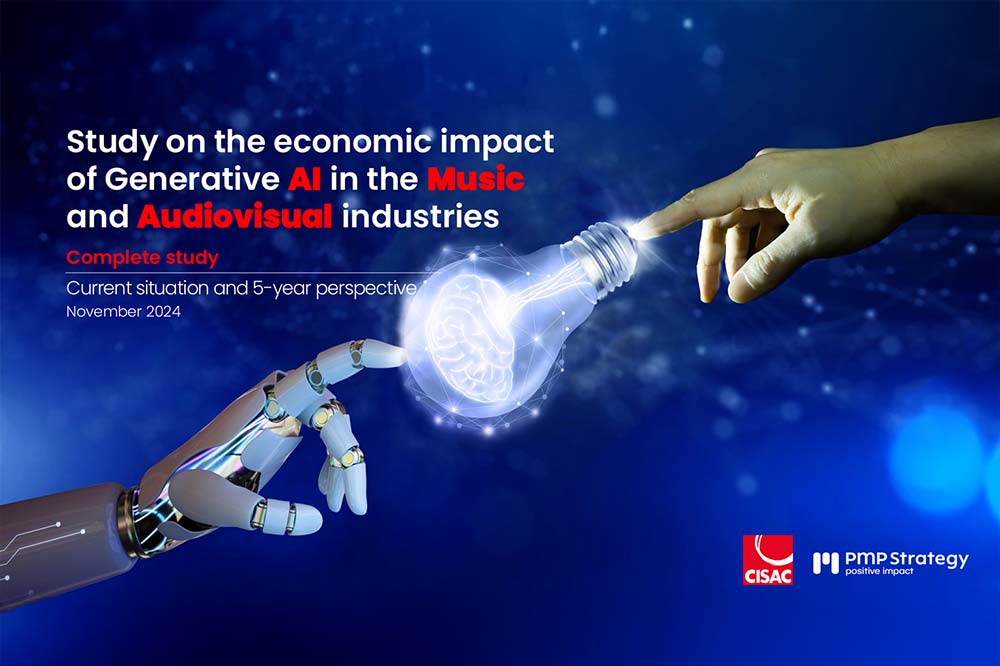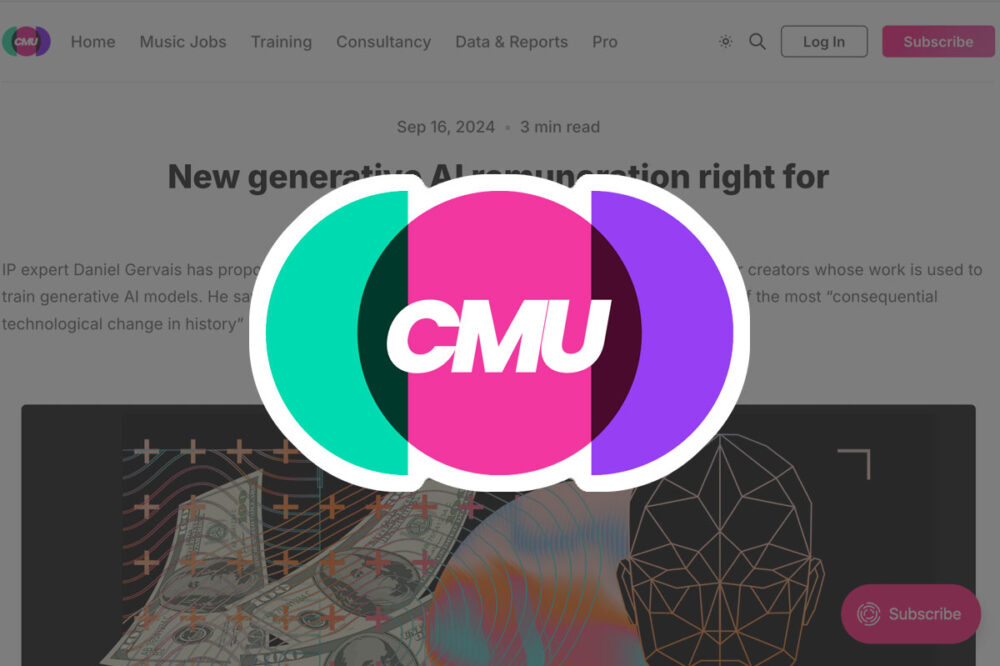Policy makers must safeguard creators’ rights and implement transparency rules.
Paris – 4th December 2024: The International Confederation of Societies of Authors and Composers (CISAC) has released the first global study measuring the economic impact of Generative AI in the music and audiovisual sectors. Over more than 100 pages, the report details how Gen AI will enrich tech companies while substantially jeopardising the income of human creators in the next five years.
The study concludes that with an unchanged regulatory framework, creators will suffer losses on two fronts:
- The loss of revenues due to the unauthorised and unremunerated use of their works by Gen AI models
- The replacement of their traditional revenue streams due to the substitution effect of Gen AI outputs that compete against human-made work
It is estimated that by 2028, 24% of music creator revenues will be at risk as the market for Gen AI music and audiovisual content rises to €64bn from €3bn today.
Music streaming and library markets will be especially strongly impacted. In five years, Gen AI music is projected to account for approximately 20% of traditional music streaming platforms’ revenues, and around 60% of music libraries’ revenues.
Download the CISAC report here.
FTMI Comment
The impact of the findings in the new report cannot be overstated. Music creators have always used technology to create and distribute their work. The key difference here is the absence of any equitable remuneration for providing the foundation upon which Gen AI is built.
One solution being proposed by FTMI and others is the establishment of a new right of remuneration vested in individual human creators. Whilst not precluding a licensing regime for the reproductions that occur during the text and data mining process, this new sui generis right would ensure that music creators receive a licensed royalty when Gen AI datasets containing their works are used to manufacture competing “content”.
Read more on this proposal in our Gen AI White Paper.



